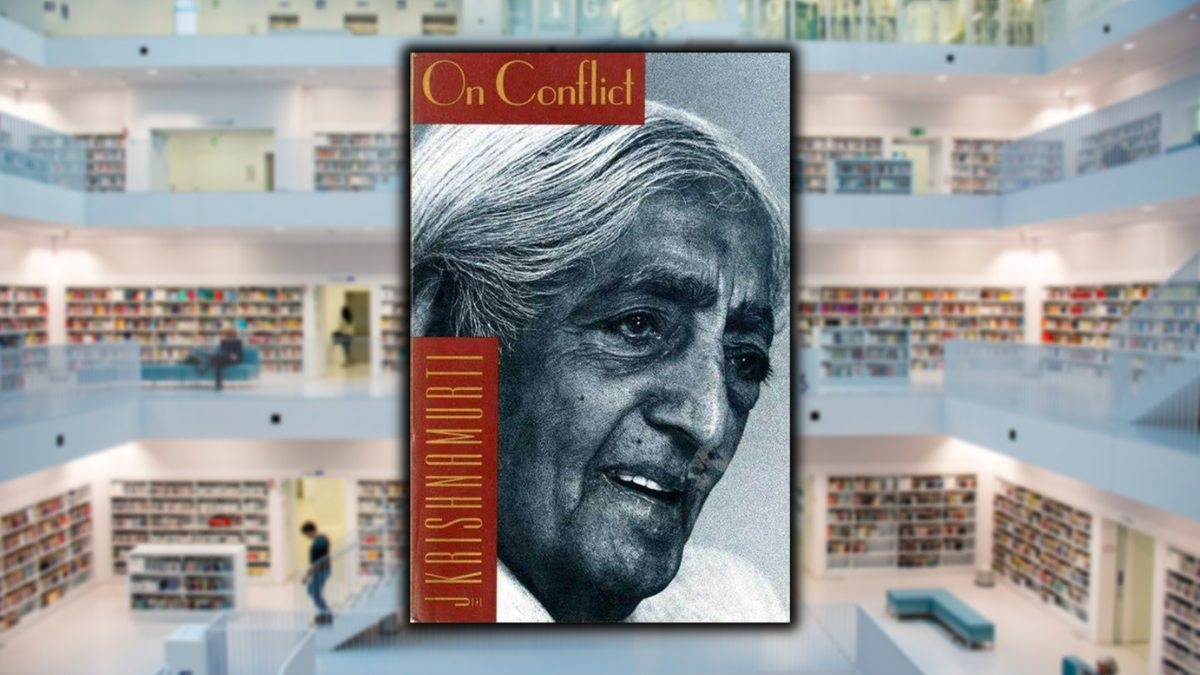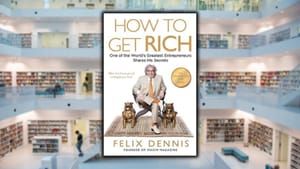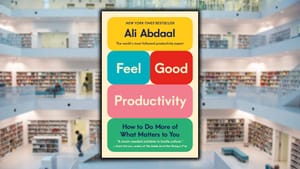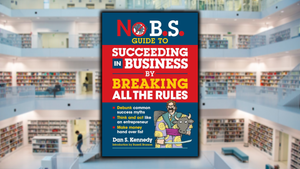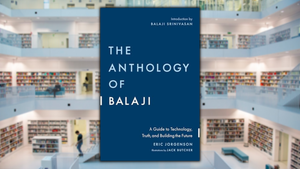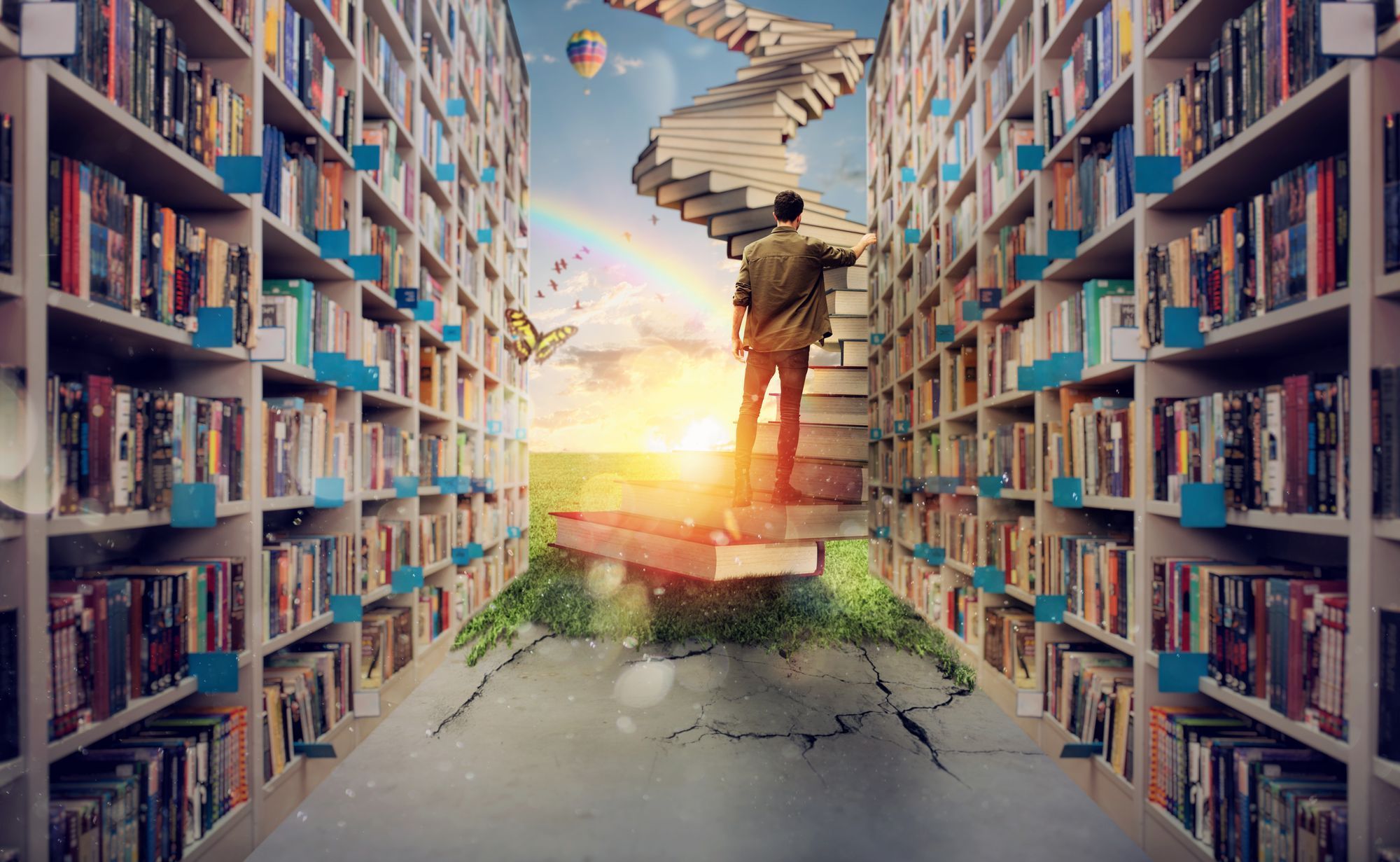
This Book is For:
*Everyone who is tired of all the destructive, drawn-out, ugly rage-fests cluttering up our screens and our daily lives, and who wants to finally find peace.
*People who are curious about the psychological underpinnings of belief and violence, and who want to understand more about the causes and cures of conflict.
*Anyone who is concerned about the general state of the world, but who isn't ready to give up on the possibility of using our fundamental human identity and interconnectedness to create a compelling vision of humanity's future.
Summary:
“Is it possible to live a life without conflict in the modern world, with all the strain, struggle, pressures and influences in the social structure? That is really living, the essence of a mind that is inquiring seriously. The question whether there is God, whether there is truth, whether there is beauty can come only when this is established, when the mind is no longer in conflict.”
-Jiddu Krishnamurti
Violence is like a stone dropped into the middle of a lake. At the center is the perpetrator of the violence or conflict, or the "ego," the "me," and once set into motion, the waves spread and spread, with ripple effects across time that affect all of us.
As long as the "me" survives, says Jiddu Krishnamurti, it is the logical extension of this fact that there must be violence. It is an inevitability, and the only peaceful path forward is to dissolve the ego, with all of its pointless strivings, useless antagonisms, and petty hatreds.
We are the world, and what we are, the world is. If we are hostile and greedy and violent and all the rest of it, then that's exactly the kind of world we will all create together.
In a public talk that Krishnamurti gave in Madras in December of 1976, he had this to say about our common identity:
When one goes around the world—America, Europe, and different parts of Europe—and come to this country (India), one finds that human beings, whether black, brown, or yellow, or purple, whatever color you like, are almost the same: They suffer. They are confused. They are uncertain. They are seeking jobs, some kind of security, both physically as well as psychologically.
So, wherever you go, human beings are almost the same. They may have cultural, superficial differences, but inwardly, psychologically, they are essentially the same. So, you are the world, and the world is you.
Conflict is the natural result of this futile search for security, and as long as there is division among people, violence will be a fact of life. The problem - and the solution - remains with us, and there's no "teaching" or "belief system" that can resolve violence once and for all, nothing outside of ourselves that can come to our rescue.
Thus, at the core, each of us must hold ourselves completely responsible for the state of the world and the violence occurring within it and committed in our names. This is a radical claim, obviously, but as you'll see, Krishnamurti never really does anything halfway!
He says that change, radical change, must be immediate and total, and not experienced in terms of time. We either change now, or we never will.
We either find a way to see conflict clearly for what it is, what it's doing to our psyches and our homes and our world, and resolve it now, or it will always be with us.
Krishnamurti also points out how even the most “peaceful” among us are caught in the conflicts of competition, pride, accumulation, and consumption – conflict is endemic. But is it inevitable? Can we learn a different way of seeing and of living?
I don’t know. Neither did Krishnamurti. And neither do you. Not really. That’s why it’s so essential to ask the question, and actually listen to yourself for the answer.
So this book is about conflict, and about questioning the idea that conflict is inevitable. But you won't find any answers here. I hope you weren't expecting answers! I'm afraid that, with Krishnamurti, most of what you get is more questions.
But this is because he and I are not authorities in any way, and certainly, we have no right to tell you what to think - about conflict, or about anything else. As Krishnamurti said in one of his most famous speeches:
"I maintain that no organization can lead man to spirituality. If an organization be created for this purpose, it becomes a crutch, a weakness, a bondage, and must cripple the individual, and prevent him from growing, from establishing his uniqueness, which lies in the discovery for himself of that absolute, unconditioned Truth."
So he never tells you what to think, but only hints at the way forward and encourages you to make the trip yourself. He asks you to develop an idea of what you think, not what he or anyone else tries to tell you to think, and to experience the reality of conflict immediately, personally, and not in terms of any system of belief or opinion.
In terms of the conflict endemic in the world, he would only point out that we are networked with, in relationship with, everything and everyone else that exists. So if we are greedy and fearful and violent and selfish, then that's exactly what we will perpetuate in our daily lives.
We have created our society through our relationships with others and our habitual patterns of thinking, and if we want to change the world, it is impossible to leave ourselves unchanged.
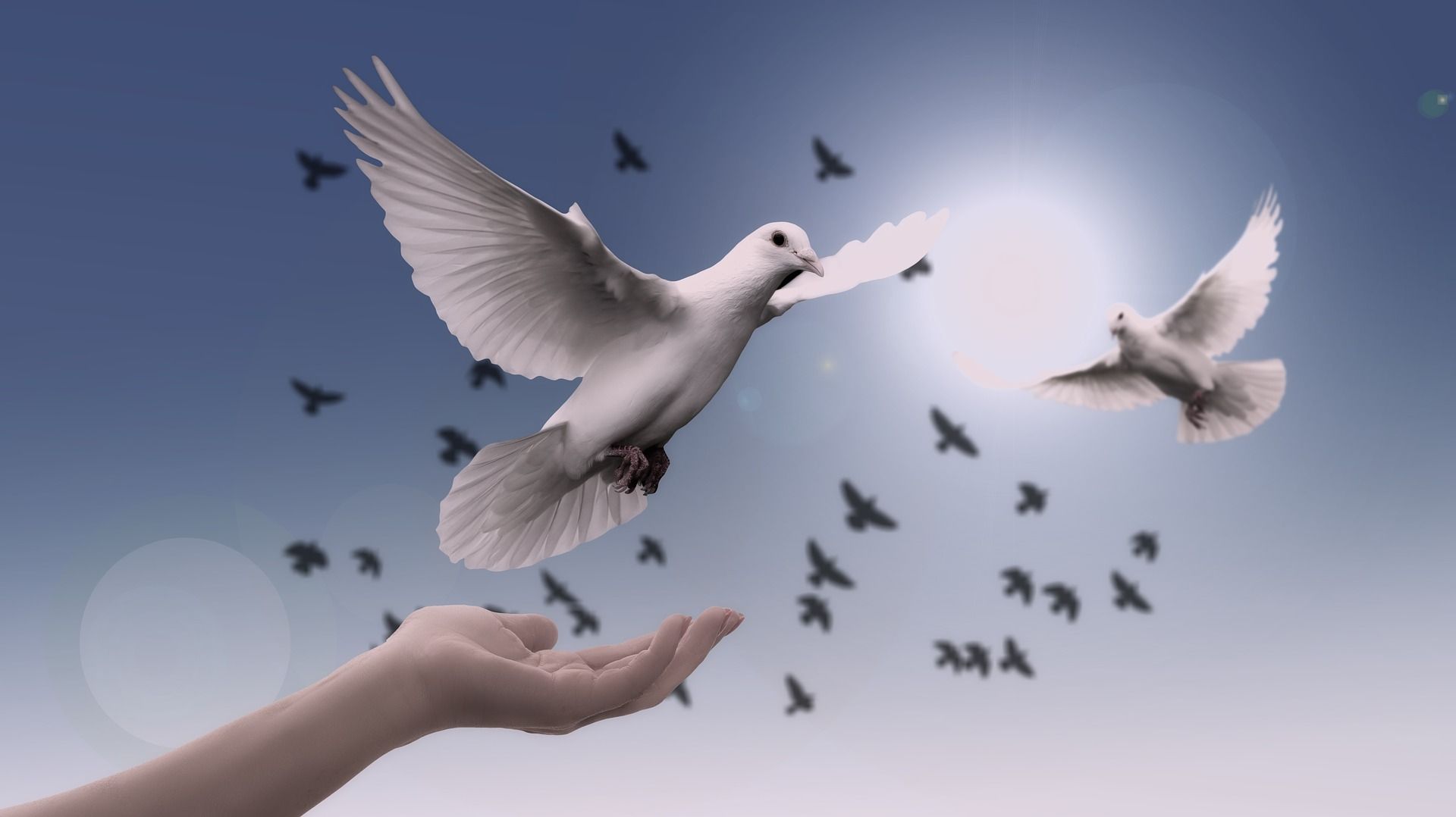
Key Ideas:
#1: Civilization is Us
“Each one of us has built up this civilization, has contributed towards its misery, is responsible for its actions. We are the outcome of each other’s actions and reactions; this civilization is a collective result.”
Each of us must take responsibility for the state of the world because, what we are, the world is. We have, collectively, built this human civilization into what it is today, and Krishnamurti says that taking total responsibility for the total state of the world is the only tenable path forward.
It's the only thing we can reasonably do. If we do anything less than take total responsibility, we will just keep on destroying ourselves.
If it's the case that civilization is really just the aggregate of all its members, then it stands to reason that if we are envious, hostile, greedy, selfish, miserable, and aggressive, that's exactly the kind of civilization that's going to result.
Even if it's not your "fault," it's still your responsibility, because you have to live here! You have to live in this world of nearly 8,000,000 people, and when you change for the better, the whole world changes too.
If there is something wrong with the world, then it is you and I who have to fix it - we can't wait for some authority or some mass movement to come to save us.
This is exceptionally difficult because it's such a big ask. To take total responsibility for the hostility and selfish violence of every other person on the planet? Surely we didn't have any control over what other people do or have done!
But that's beside the point, because although we have the power to change ourselves, it's actually the only power we do have. What we do, the world becomes.
To see the truth of this and to act on it in a meaningful way, we need to question our whole manner of living. We have to make the unconscious conscious, and see that we are fearful and greedy and hateful...and then put a stop to it. Immediately. Not "later," not "when the other guy goes first," but now.
The historian Theodore Zeldin once described humanity as a great big family that hadn't really met each other yet, and the fact is that we are deeply embedded in a relationship with every other person with whom we share the planet. We are the total civilization, and we are the solution to all conflict.
If we don't see the truth of this, it's because we haven't asked the right questions about our current manner of living and relating. As Krishnamurti goes on to explain:
“War is a projection of our daily life – only more spectacular and more destructive. In daily life we are killing, destroying, mand aiming thousands through our greed, through our nationalism, through our economic frontiers, and so on.
So war is the continuation of your daily existence made more spectacular; and the moment you directly question the cause of war, you are questioning your relationship with another, which means that you are questioning your whole existence, your whole way of living.”
#2: You Are the Conflict
“So can you observe your conflict and see that it is not separate from you, that you are that conflict?”
Expanding on Krishnamurti's thoughts from Key Idea #1, can you see how it is you and I that creates conflict, and not some "other"?
This isn't about self-blame, self-pity, or anything self-indulgent like that whatsoever. All Krishnamurti suggests that we do is observe ourselves, obtain a clear view of the total interconnectedness of all human beings, and examine our role within that network.
It's about taking a slow, deliberate look at our daily lives, and asking ourselves how much of it is taken up by strife, quarreling, competing, shoving and fighting, and hating.
Now, of course, there's also plenty of love, mutual support, and blind, unadulterated kindness that exists in the world and between people, but the idea is that it's out of this totality that civilization emerges...and you are it.
#3: Can There Be an End to Conflict?
“You give a great deal of time and energy to making money, as you do to being entertained. But you never give energy deeply and profoundly, in complete attention, to find out whether conflict can ever end.”
The natural question that results from all this is, Can there be an end to conflict? Can we just...stop?
And here, in peak form, Krishnamurti penetrates right to the heart of what it is that we spend our lives doing all day, and relentlessly questions whether it's taking us closer to or further away from peace.
Krishnamurti wasn't perfect. He wasn't a god or some sort of sage or anything. He was just a guy. Earning enough money to stay alive is something he had to do as well because he was no different - and no better than any of the rest of us.
So we have to give some time to considerations of providing for ourselves and the people we care about. And obviously, he wasn't "against" entertainment! He wasn't "anti" fun. His bookshelves contained a ton of Tom Clancy novels and the like. He laughed. He loved life. And he fought with people occasionally!
But he also wasn't deluded about the true nature of conflict, our role within it, and the possibility of finding a resolution.
Conflict of some sort is inevitable, but it doesn't have to tear us apart. And I think, along with Krishnamurti, that if we were to put this question to ourselves, to ask ourselves whether the devastating conflicts that ravage the earth could ever cease, we would find an essential answer.
What else could be more important than that?
#4: The Dangers of Belief
“So we human beings have problems. As I said, one of these problems is conflict, conflict between ‘what is’ and ‘what should be.’ That is a conflict. And belief in any form, which gives a certain kind of psychological security, is detrimental to man. If you see conflict is a danger, look at it, see all the consequences of it, see it as a fact, and don’t move away from that fact, then the very perception of it is the ending of it.”
Krishnamurti often said that to have no beliefs is the only way to find out what is actually true; because, if you already hold certain beliefs, then everything new that you see and hear gets filtered through those preexisting beliefs, and you never discover the truth.
This, as I'm sure you can imagine, is extreme. It's a radical, revolutionary thought, this idea of giving up all beliefs and perceiving reality immediately, with virtually no prejudice or preformed opinion. Reasonable people could argue that it's not practical, and it would be tough to disagree with them!
That being said, belief in one idea or another is the basic cause of almost all conflict. There is a disconnect between "what is" and "what should be," and from that space, conflict between human beings emerges. Beliefs bring psychological security to those who hold those beliefs, and when one encounters someone holding an opposite belief, that security is threatened.
In the third Key Idea, Krishnamurti points out that we spend a great deal of time on other matters, but relatively little trying to find out whether conflict can ever cease. What he urges us to do, in this case, is to perceive the fact of conflict - the reality of it - and not look away. To see that conflict is the case, and refuse to retreat into our safe, secure beliefs.
When you change the way you look at things, the things you look at change, and nowhere is this more necessary than in the examination of conflict. When you see it for a fact - an ugly, painful, horrible, unnecessary fact - then that is the first step toward resolving it.
You see the pointless destruction and the waste, how it makes you look and feel - who it turns you into - and you see the futility of it all, the arbitrariness of it, and you may even see the path out of it.
It doesn't mean that you concede that the other person was right all along, or that you refuse to stand up to injustice or never get angry again, but rather that you see how conflict itself does more harm than good. You see that there is a pathway out of conflict that can be walked together and that this process is immediate, instantaneous, and not the result of time.
#5: Radical Change
“Until a radical change takes place and we wipe out all nationalities, all ideologies, all religious divisions, and establish a global relationship psychologically first, inwardly before organizing the outer – we shall go on with wars.
If you harm others, if you kill others, whether in anger or by organized murder, which is called war, you, who are the rest of humanity, not a separate human being fighting the rest of mankind, are destroying yourself. This is the real issue, the basic issue, which you must understand and resolve.
Until you are committed, dedicated, to eradicating this national, economic, and religious division, you are perpetuating war. You are responsible for all wars, whether nuclear or traditional.”
In The Revolution from Within, Krishnamurti places great emphasis on instant transformation, as I've done here in this breakdown. Change is immediate, or it doesn't happen at all, as he explains.
For example, if you say that you are unhappy and are trying to become happier, or that you wish you could be nonviolent, then you have defined yourself as being unhappy and violent. That is your identity, and people don't give up their identities so easily!
Radical transformation, radical change, is either now or never. It's not a question of becoming happier tomorrow or peaceful tomorrow, but about changing the very quality of your mind, your fundamental being, and changing now. It doesn't happen piece by piece.
We've invested so much in our personal, familial, national identities, and group conflict which is civilization has been the result of all this. We gain status from claiming membership in some group and attempting to rise within that hierarchy, competing against other groups for position and influence. But this is exactly what Krishnamurti says will prevent us from halting conflict.
When we break down group barriers and see ourselves in terms of our fundamental interconnectedness and shared humanity, that will be the beginning of the end of conflict. Anything less than total identification with the rest of humanity means that we'll simply go on destroying ourselves.
Some people will say it's not "realistic" to break down these barriers and cast off group conflict in favor of human solidarity. I say it's not realistic to go on in the same manner as before, leaving ourselves open to division, conflict, group hatred, and the erosion of shared community!
You and I are responsible for ending conflict, in exactly the same way that you and I are responsible for the present state of society and our current trajectory. We are totally responsible, now and forever, and we face the ultimate choice of being "realistic" and holding onto our conflict or taking on the "unrealistic" task of transforming ourselves totally and becoming free.
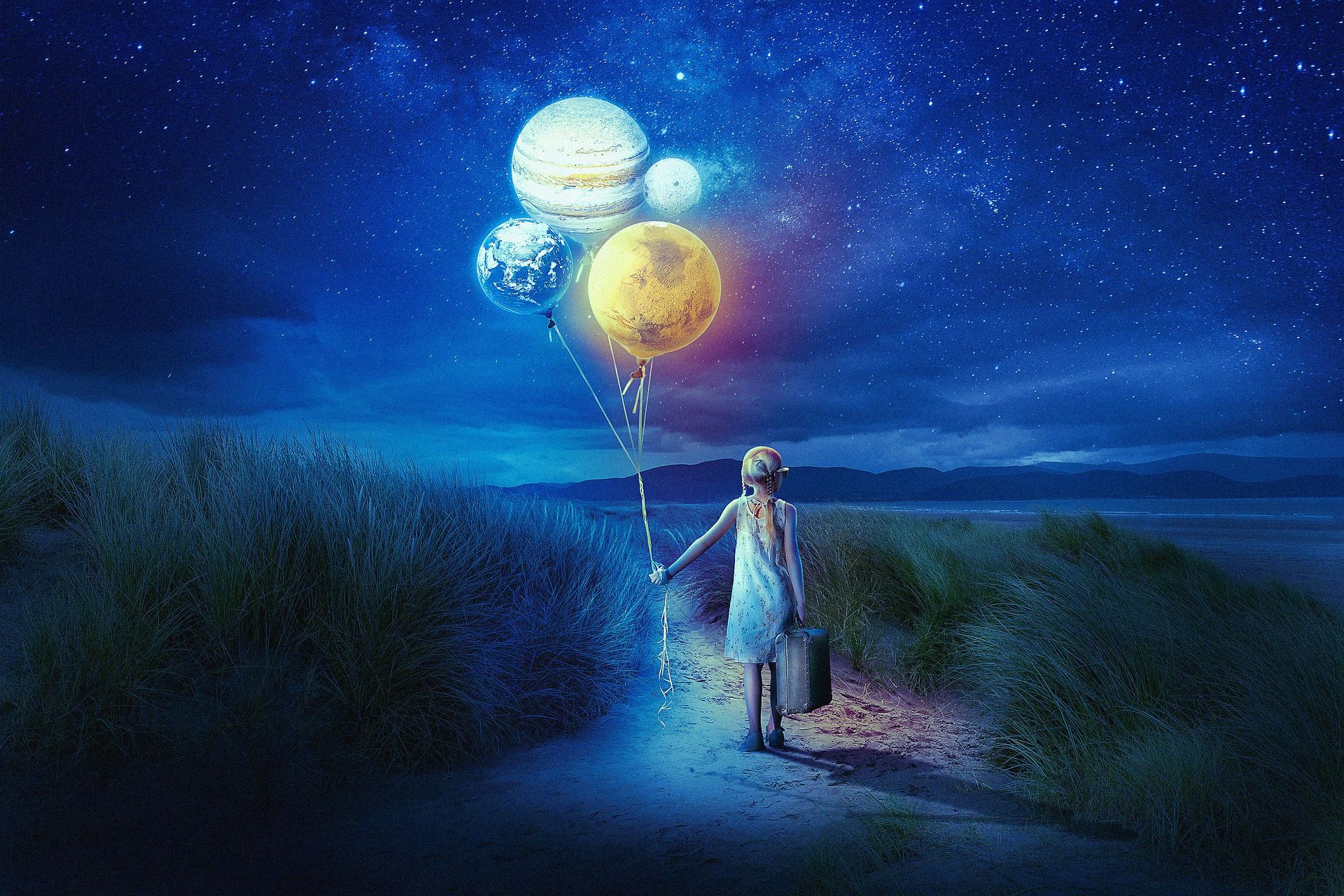
Book Notes:
“What we are, the world is.”
“You don’t see that the house is burning and you are living in it.”
"When we stop fighting with ourselves, we aren't creating any more conflict in our minds. Then our mind can for the first time relax and be still. Then for the first time, our consciousness can become whole and unfragmented.
Then, total attention can be given to all of our thoughts and feelings. And then there will be found a gentleness and a goodness in us that can embrace all that has been given in the world.
Then a deep love for everything will be the result of this deep attention. For this total attention, this soft and pure consciousness that we are, is nothing but Love itself."
“Attention without the borders of time is the flowering of meditation.”
“If the ‘me’ is not, where is the fear?”
“Your books, so-called sacred books, are worthless if they don’t help you to be free.”
“If you change, it will affect the whole of mankind.”
“We are asking a much more fundamental, deeper question: why is man against man? Aren’t you against somebody? Aren’t you violent? And you are the whole of humanity.
I know we like to think we are separate individuals, private souls – but we are not. You are the rest of mankind because you suffer, agonize, are lonely, depressed like all the rest. So you are basically, fundamentally the rest of mankind.
You are humanity, and you are, whether you like it or not, in the global sense. If you are antagonistic, violent, aggressive, patriotic, my country is better than your country, my culture is the highest, and all that nonsense, then you are selling armaments; you have helped to torture people because you are a Catholic, a Protestant, a Hindu.
Where there is division, there must be conflict and all the rest of it. So are you acting wholly, or is it the little me acting? Then you are man against another.”
“Until these ideas, ideologies, end, and man becomes responsible for other human beings, there cannot possibly be peace in the world.”

Important Insights from Related Books:
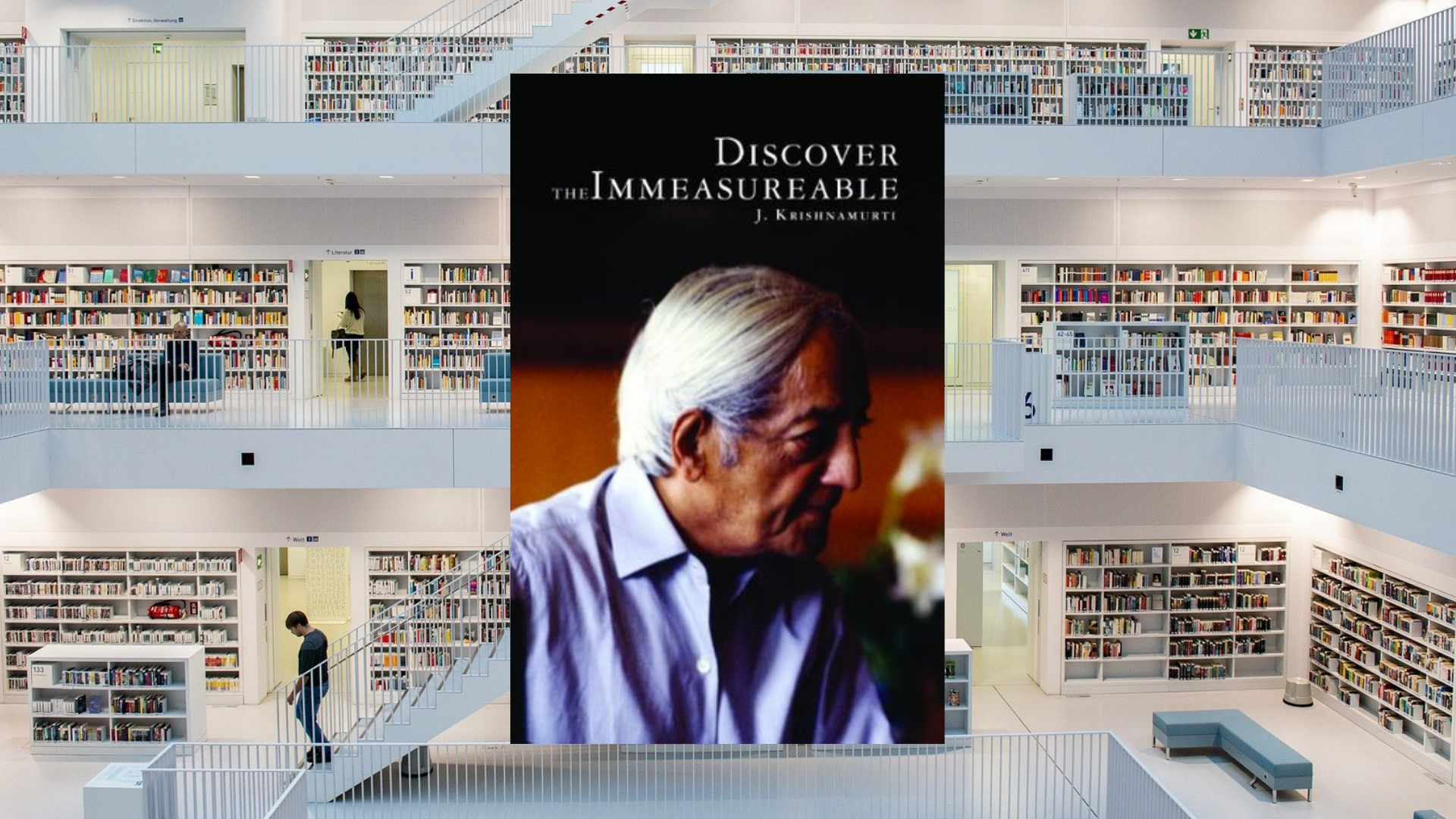
Discover the Immeasurable, by Jiddu Krishnamurti:
"I maintain that no organization can lead man to spirituality. If an organization be created for this purpose, it becomes a crutch, a weakness, a bondage, and must cripple the individual, and prevent him from growing, from establishing his uniqueness, which lies in the discovery for himself of that absolute, unconditioned Truth."
-Jiddu Krishnamurti
When he was a young man, Krishnamurti was "discovered" by one of the leading members of the Theosophical Society and groomed to become a new World Teacher, someone who would guide the evolution of mankind through his teachings and lead humanity into a new era.
An organization was even founded to support this aim - The Order of the Star - but in August of 1929, Krishnamurti suddenly stepped down from his position and dissolved the entire organization. He did this after a short but epic speech titled, "Truth is a Pathless Land," where he asserted that no organization can ever lead a person to discover truth; there is no authority that can ever replace the need for an honest, searching inquiry into the fundamental nature of reality.
For the next 60 years, he traveled all over the world, giving public talks and speaking with individuals about the vital importance of deep, personal meditation, and the radical transformation of the human psyche.
Discover the Immeasurable contains a series of six lectures given by J. Krishnamurti in the Fall of 1956, where he speaks about the inherently evil nature of authority, the constant flow of existence, and how the structure of our current society and even our own minds perpetuates needless conflict, misery, and tragedy.
We have created our society through our relationships with others and our habitual patterns of thinking, and if we want to change the world, it is impossible to leave ourselves unchanged.
Sample Quotes from the Book:
“To understand the immeasurable, the mind must be extraordinarily quiet, still; if I think I am going to achieve stillness at some future date, I have destroyed the possibility of stillness. It is now or never. But we are all thinking of heaven in terms of time.”
“So long as there is nationalism, so long as you are a German or a Russian or an American, clinging to sovereignty, to an exclusive nationality, you are sure to have war. So long as you are a Christian and I am a Hindu, or you are a Muslim and I am a Buddhist, there is bound to be war.
So long as you are ambitious, wanting to reach the top of your society, seeking achievement and worshiping success, you will be a cause of war. But we are brought up on all this. We are trained to compete, to succeed, to be ambitious, to serve a particular government, to belong to a particular country or religion. Our whole education cultivates the competitive spirit and guides the mind towards war. And can we, as individual human beings, change all this?
Can you and I individually cease to be ambitious, cease to regard ourselves as Germans or Indians, cease to belong to any particular religion, to any particular group or ideology – communist, socialist, or any other – and be concerned only with human welfare?
So long as we remain attached to a group or to an ideology, so long as we are ambitious, seeking success, we are bound to create war. It may not be a war of outward destruction, but we will have conflict between each other and within ourselves, which is actually a form of war.
I do not think we see this, and even if we do, we are not serious about it. We want some miraculous event to take place to stop war, while we continue to live as we are in the present social structure, making money, seeking position, power, prestige, trying to become famous, and all the rest of it. That is our pattern, and so long as that pattern exists in our minds and hearts, we are bound to produce war.”
“The individual problem is the world problem. It is what we are as individuals that create society, society being the relationship between ourselves and others. I am speaking – and please believe it – as one individual to another, so that together we may understand the many problems that confront us.
I am not establishing myself as an authority to tell you what to do because I do not believe in authority in spiritual matters. All authority is evil, and all sense of authority must cease, especially if we would find out what is God, what is truth, whether there is something beyond the mere measure of the mind. That is why it is very important for the individual to understand himself.”
Read the Full Breakdown: Discover the Immeasurable, by Jiddu Krishnamurti
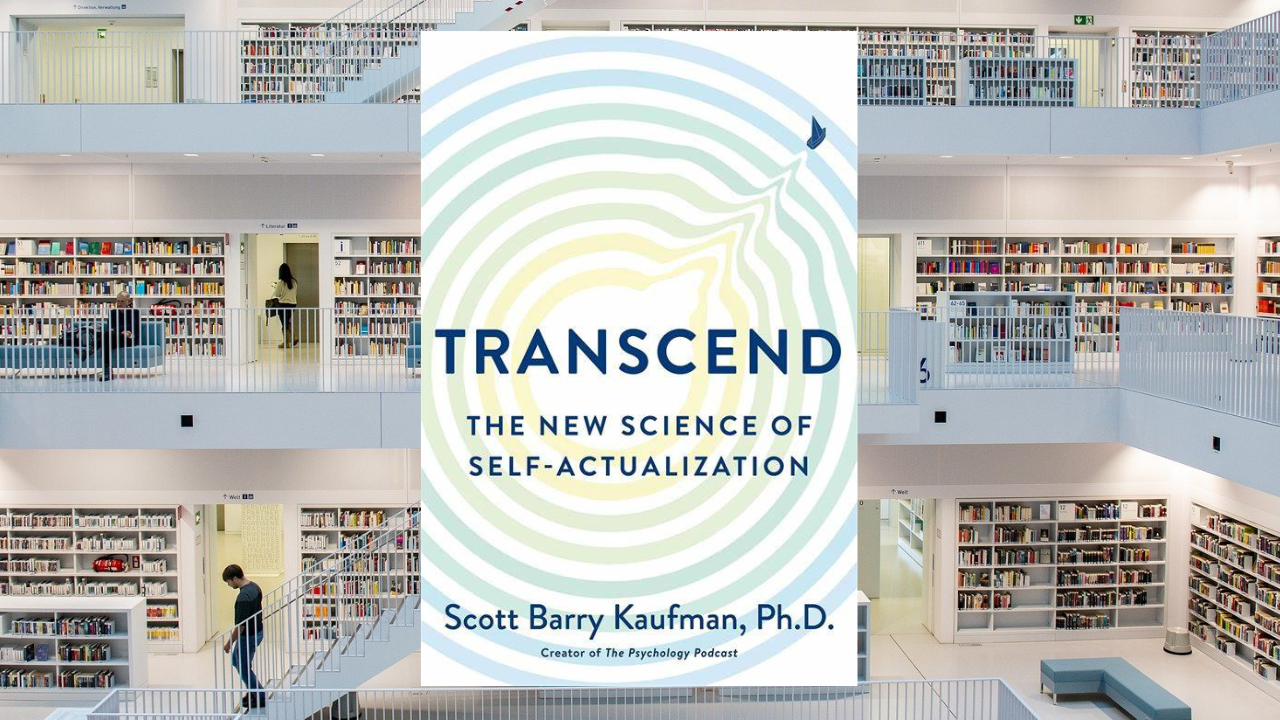
Transcend, by Scott Barry Kaufman:
Ideas never die, and although Abraham Maslow passed away in 1970, the currents of his thought have turned into a tidal wave, thanks to the pioneering work of Dr. Scott Barry Kaufman, who has expanded and updated Maslow's ideas for the benefit of us all.
Maslow was an American psychologist who is often credited with hammering out a hierarchy of needs - that same pyramid you were probably made to memorize in school - that includes the basic "security" needs of safety, connection, and self-esteem, and then moves through the "growth" needs of exploration, love, and purpose.
In Transcend, Dr. Kaufman shows how, right up until the end of his life, Maslow was extending his world-famous ideas about self-actualization and self-expression and moving into the territory of transcendence, or interconnection between the fates and destinies of every human being alive on Earth.
It's a big vision, but as you'll be able to tell, he thought more highly of each of us than perhaps we've ever thought of ourselves.
Indeed, throughout Transcend, Dr. Kaufman gives us a picture of a man so enamored with the possibilities for mankind's development and flourishing that you almost can't help but be swept away by Maslow's ideas. He makes us want to be better than we are.
Sample Quotes from the Book:
“I believe in the fundamental capacity of humans for growth. No matter your current personality or circumstance, I believe that this book can help you grow in precisely the direction you truly want to grow, in your own style, and in such a way that allows you to show the universe that you really existed, and benefited others, while you were here. Let's begin the process of becoming."
“There is something comforting about the fact that we all exist together and have to confront the same existential dilemmas."
“Healthy transcendence is an emergent phenomenon resulting from the harmonious integration of one's whole self in the service of cultivating the good society."
Read the Full Breakdown: Transcend, by Scott Barry Kaufman
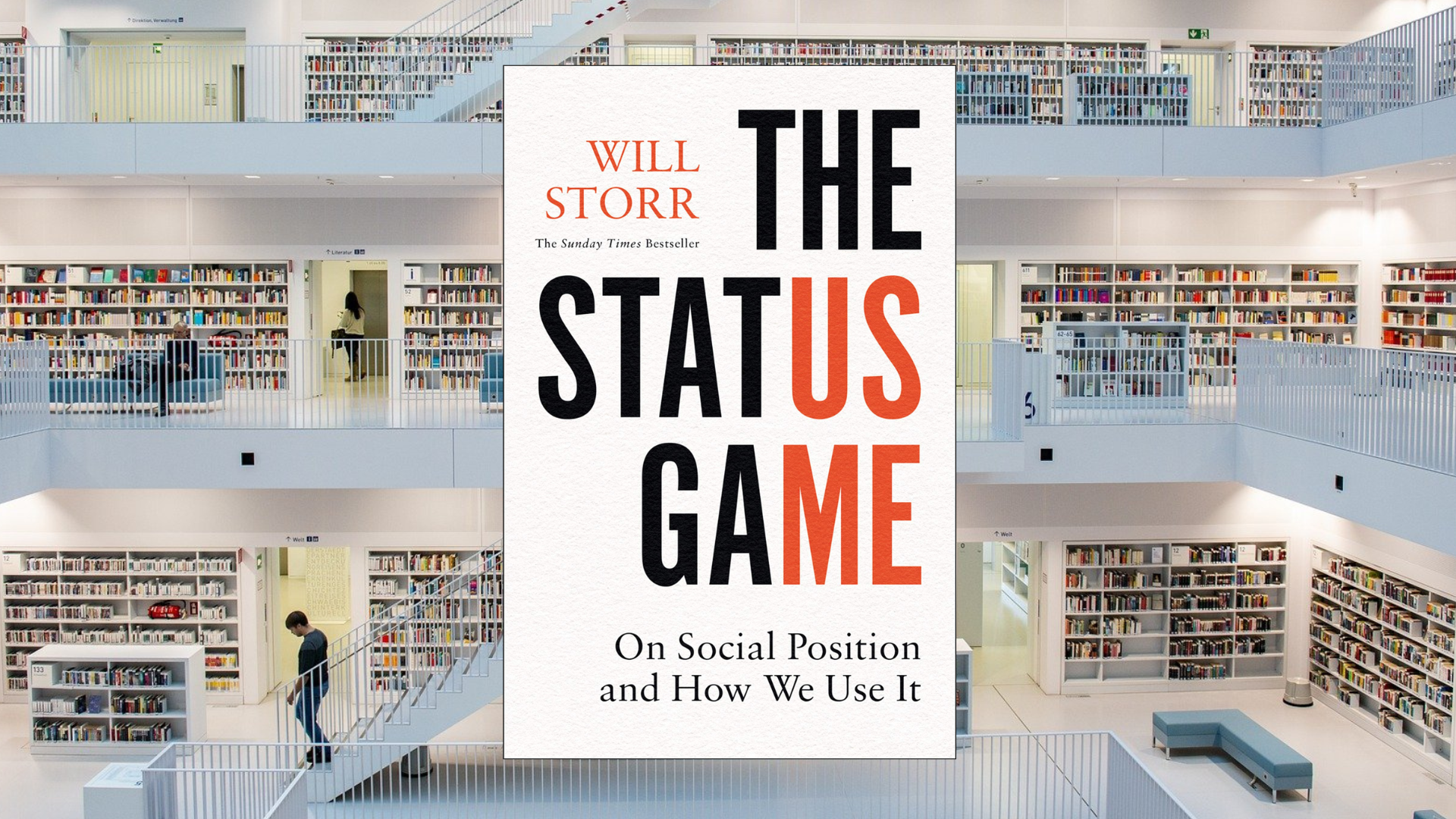
The Status Game, by Will Storr:
“We can think of our reputation as a symbolic version of us that exists in the minds of others. Human brains required the capacity to store these highly detailed symbolic selves. Our neural worlds are crowded with hallucinations of others so vivid they can almost be summoned at will. We all walk around with everyone we know crowded inside our heads.”
-Will Storr, The Status Game
Put any group of humans together, and almost instantly, they'll start trying to figure out who should lead, who's most worthy of respect, and who should be praised and emulated.
Not only that, but we each carry around a sense of where we stand in that hierarchy, and many of us go to rather extreme lengths in order to rise to the top.
According to the award-winning writer and journalist Will Storr (award-winning = high status!), the "status game" that we're all playing is an invisible thread that runs through the best and the worst of what human beings do all day.
Whether we're "winning" or "losing" affects our happiness and our self-esteem, our relationships with others, our goals in life and whom we choose to copy, and even how long we'll live.
All this being the case, just think about how complicated it is to be alive!
You've got all these forces - the cravings for status and for love, social conditioning and the impact on the individual of the wider culture, the subconscious fear of death, the swirling emotional storms affecting our thoughts and actions all day long, and so much more - how do we even live? How do we make sense of it all?
For that, we should be grateful to Will Storr as he explains a few of the rules of the Game of Life...
Sample Quotes from the Book:
“Status is an essential nutrient found not in meat or fruit or sunlight but in the successful playing of our lives. When we feel chronically deprived of it, or disconnected from the game, our minds and bodies can turn against us. To our brains, status is a resource as real as oxygen or water. When we lose it, we break.”
“The moral reality we live in is a virtue game. We use our displays of morality to manufacture status. It’s good that we do this. It’s functional.
It’s why billionaires fund libraries, university scholarships and scientific endeavors; it’s why a study of 11,672 organ donations in the USA found only thirty-one were made anonymously. It’s why we feel good when we commit moral acts and thoughts privately and enjoy the approval of our imaginary audience.
Virtue status is the bribe that nudges us into putting the interests of other people – principally our co-players – before our own.”
“One study of ninety-four wars since 1648 found 67 percent were motivated by matters of national standing or revenge, with the next greatest factor – security – coming in at a distant 18 percent.
Anthropologists Professors Alan Page Fiske and Tage Shakti Rai find that frequently, ‘decision-makers and public opinion are motivated to declare war to maintain or raise the rank of their nation vis-à-vis other nations, particularly when they feel that they have been unjustly pushed down to a low rank among other nations.’
The warring party will tend to attack in a dream of toxic morality, convinced of its virtuous intent: ‘the more a nation feels humiliated by a moral violation against it, and the more the nation experiences the act as morally outrageous, the more it seeks vengeance.'”
Read the Full Breakdown: The Status Game, by Will Storr
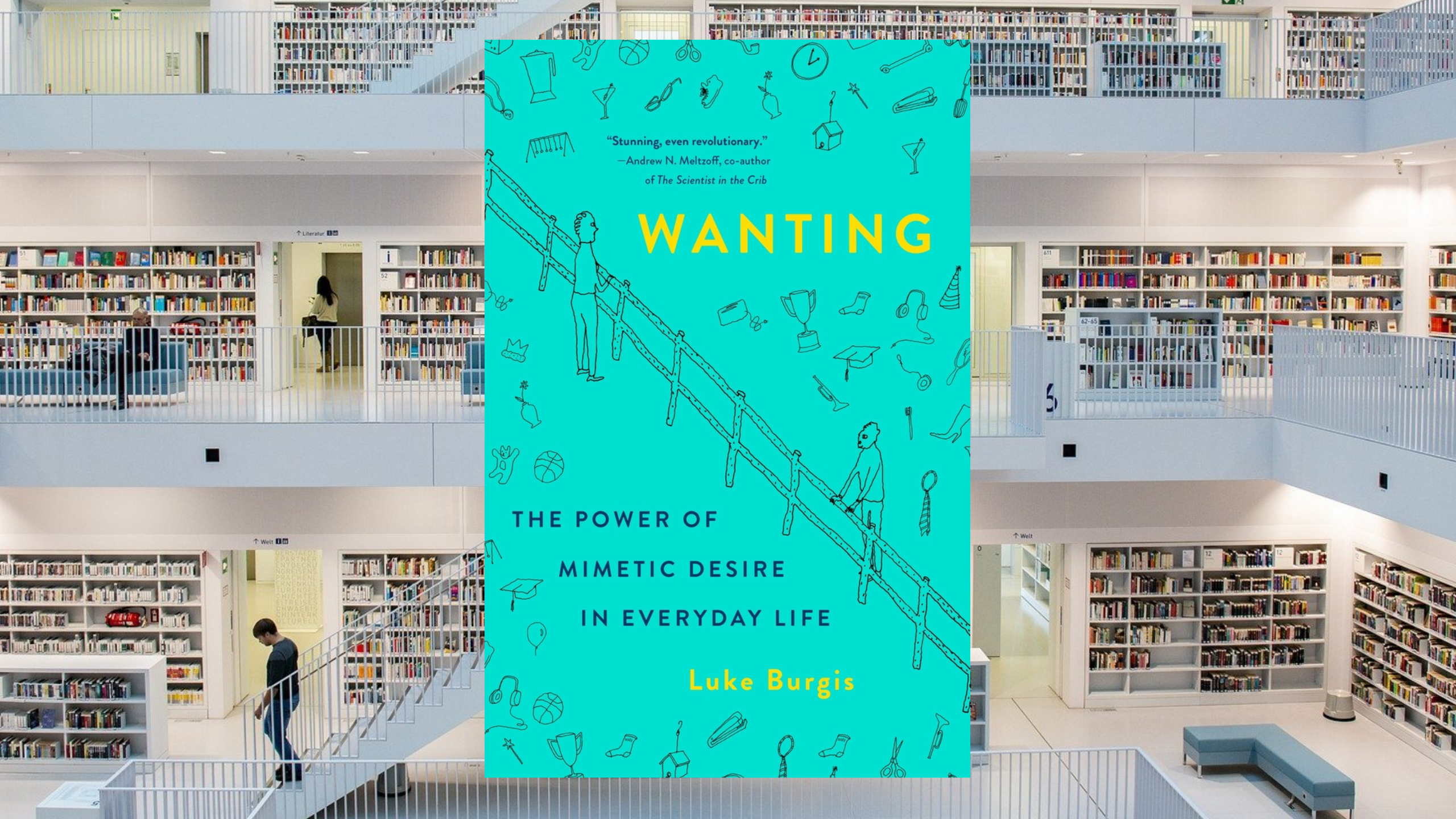
Wanting, by Luke Burgis:
It's surprising how little people know about where their desires actually come from. It's not obvious why we want what we want, and it's the endlessly fascinating "universe of human desire" that is the subject of today's book.
Backed up by the hugely influential French intellectual René Girard, author Luke Burgis shows that humans rarely desire anything independently. Human desire is mimetic - we imitate what other people want.
But in the exact same way that gravity exerts an invisible force on our bodies, the psychological force of mimesis shapes human desire all the time, silently and invisibly, and hardly anyone is aware of it happening at all.
Wanting is about how we arrive at our desires, and about how we can transform our relationship with those desires in order to step into our full humanity, relate to each other more harmoniously, and intelligently select our desires in such a way that we enlarge ourselves, rather than diminish ourselves.
Sample Quotes from the Book:
“Each of us spends every moment of our life, from the moment we’re born to the moment we die, wanting something. We even want in our sleep. Yet few people ever take the time to understand how they come to want things in the first place. Wanting well, like thinking clearly, is not an ability we’re born with. It’s a freedom we have to earn.”
“Desire doesn’t spread like information; it spreads like energy. It passes from person to person like the energy between people at a concert or political rally. This energy can lead to a cycle of positive desire, in which healthy desires gain momentum and lead to other healthy desires, uniting people in positive ways; or it can become a cycle of negative desire, in which mimetic rivalries lead to conflict and discord.”
“There are always models of desire. If you don’t know yours, they are probably wreaking havoc in your life.”
Read the Full Breakdown: Wanting, by Luke Burgis
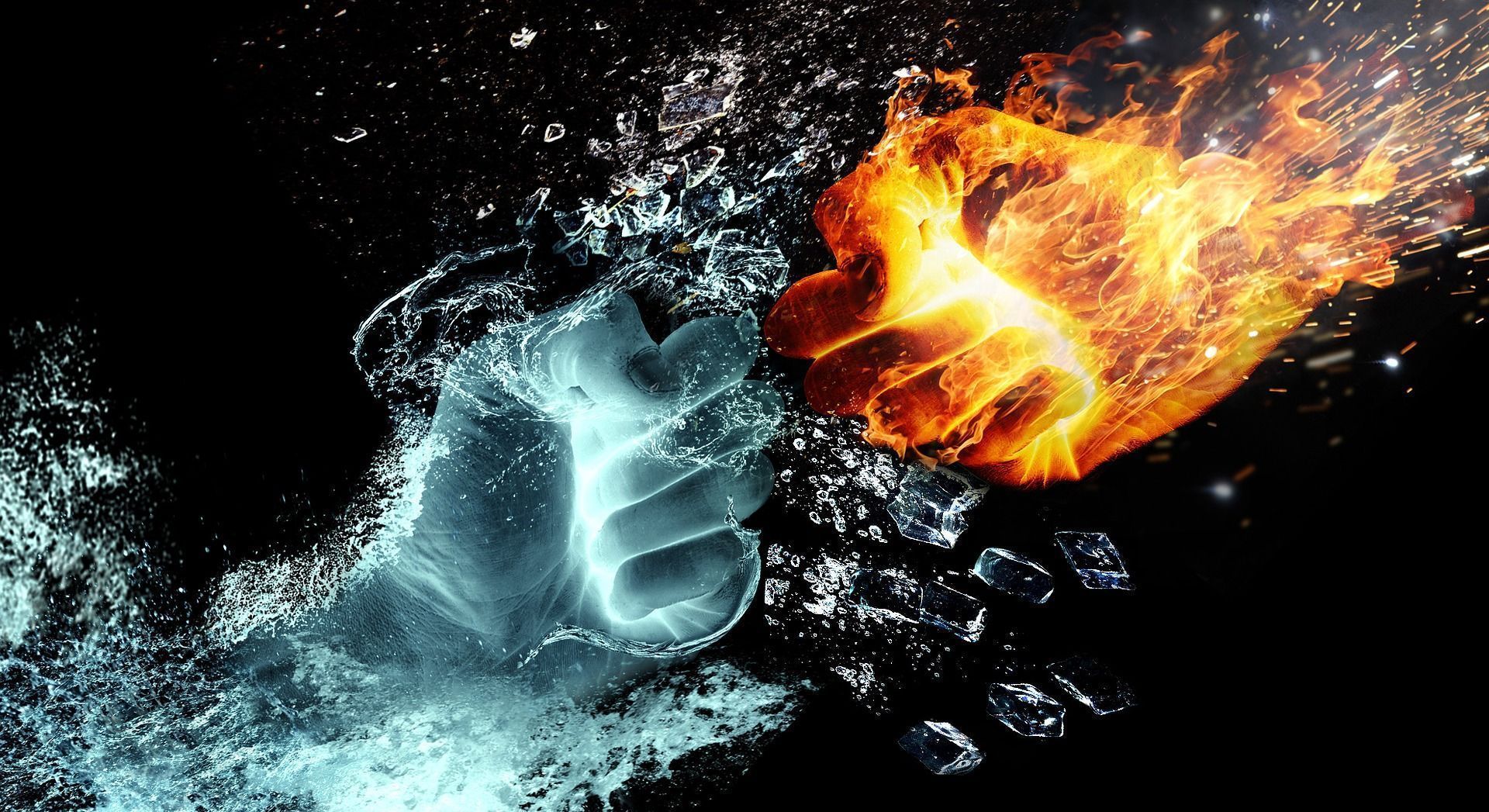
The View from the Opposition:
No one's ideas are beyond questioning. In this section, I argue the case for the opposition and raise some points you might wish to evaluate for yourself while reading this book.
#1: Successfully Married People Don't Let Petty Resentments Build Up
Bear with me for a few moments here while I talk about marriage, even though I've never been married, or engaged, or really have ever been close to getting married or engaged. Forgive me. But I think I can draw an example here from my parents' happy, successful marriage.
The fact is that my parents "fight" fairly consistently, although it's never about anything big. They don't have any serious conflict, because they never let these small, petty resentments and complaints and grudges develop into anything more serious. And, even though I have no personal experience being married myself, I think that's one of the keys to their success as a married couple.
If that's the case, then small doses of regular conflict actually prevented larger outbreaks, and probably helped them spend the last few decades together quite happily and harmoniously.
So, I don't think the answer for most people here is to "stop having conflicts," at least not in the case of marriage, or in close personal relationships.
Far better to address problems and disagreements and such before they grow into fierce shouting matches and end up in divorce court. I'll let you know myself if this works if I ever get married.
#2: Constructive Disagreement Can Be Helpful in Arriving at the Correct Answer
Diverse groups of people who disagree with one another have a much better chance of arriving at the correct answer than a group of people - even a group of really smart people - who never disagree about anything and who all believe the same things.
Now, maybe this isn't "conflict" in the sense that Krishnamurti is discussing it, but again, it helps to remember that disagreement - even heated disagreement - is sometimes necessary and beneficial.
In fact, defending against strong attacks on your deeply-held beliefs forces you to come up with extra strong reasons for believing them, and any innovative, productive society is always going to be made up of people with sharply diverging opinions and worldviews, all working together to move that society forward.
"The test of a first-rate intelligence is the ability to hold two opposed ideas in the mind at the same time and still retain the ability to function.”
-F. Scott Fitzgerald
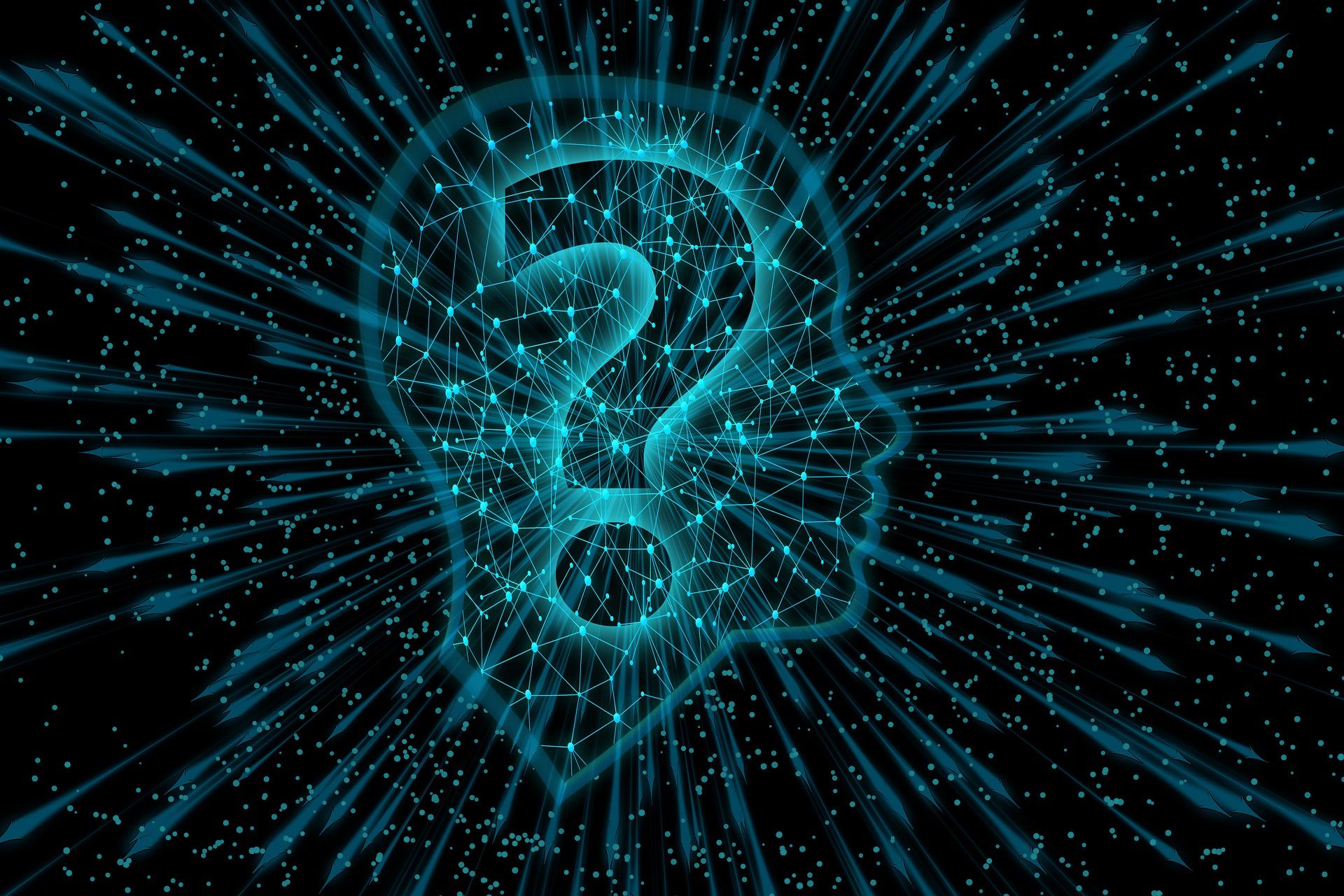
Questions to Stimulate Your Thinking:
The quality of your life is determined by the quality of your questions. That's also how you get the absolute most out of any book that you decide to read:
You ask great questions the whole time - as though the book was on trial for its life.
Here in this section are a few questions that can help guide and stimulate your thinking, but try to come up with your own additional questions, especially if you end up deciding to read this book the whole way through...
#1: "Is conflict inevitable? Is it an essential, unavoidable part of human life, or is it an aberration, something that is a deviation from right thinking and right action?"
#2: "How have you contributed to the presence of conflict in the world, and how have you participated in its resolution?"
#3: "Is there a conflict in your life - with another person, or between your "group" and another - that you have a desire to resolve? Do you see a path toward peace?"
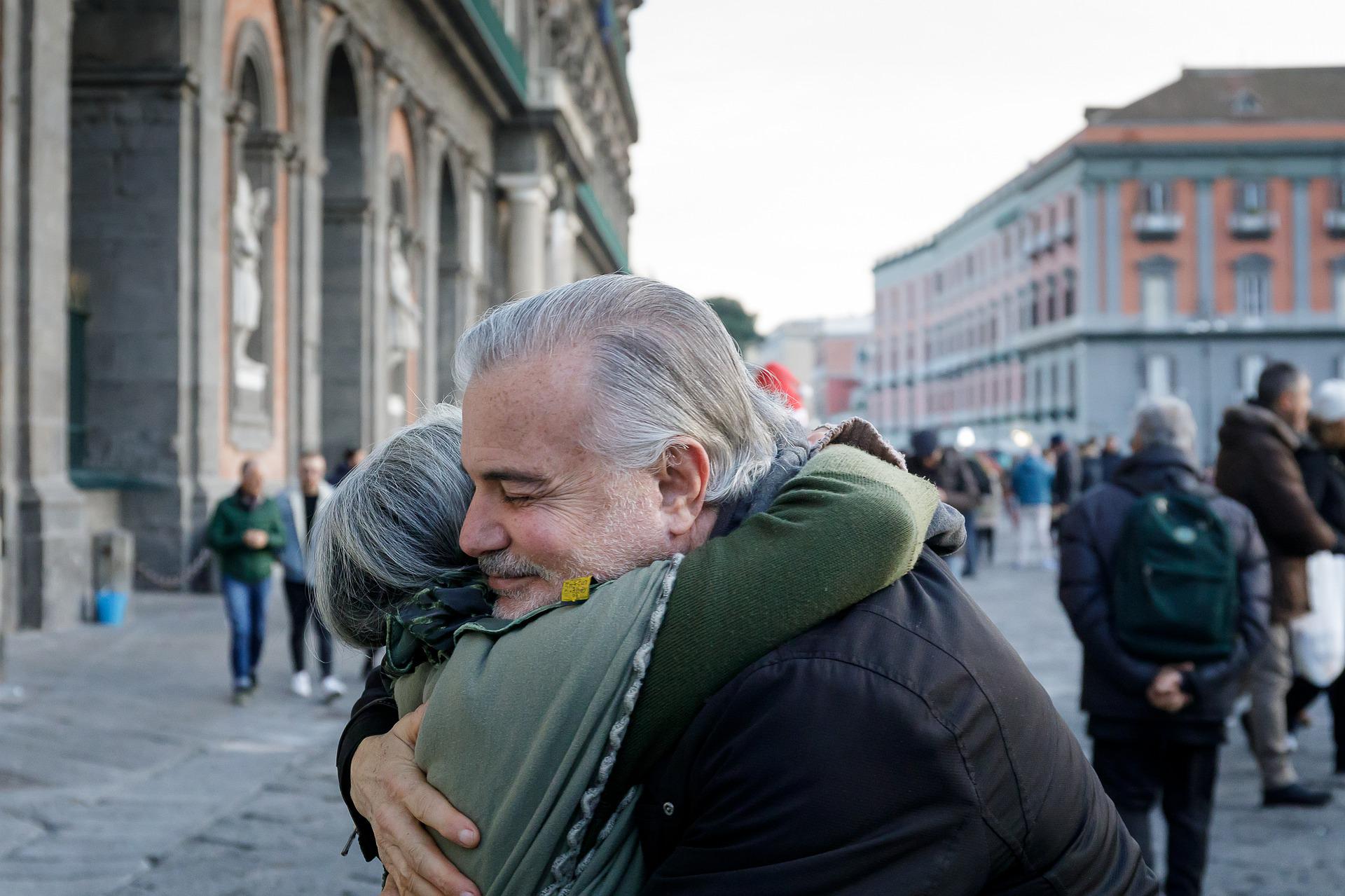
Action Steps:
So you've finished reading. What do you do now?
Reading for pleasure is great, and I wholeheartedly support it. However, I am intensely practical when I'm reading for a particular purpose. I want a result. I want to take what I've learned and apply it to my one and only life to make it better!
Because that's really what the Great Books all say. They all say: "You must change your life!" So here, below, are some suggestions for how you can apply the wisdom found in this breakdown to improve your actual life.
Please commit to taking massive action on this immediately! Acting on what you've learned here today will also help you solidify it in your long-term memory. So there's a double benefit! Let's begin...
#1: Observe the Reality of Conflict and...Do Nothing
To live in the world you must act. We all have to survive, work to put food on our tables, create art, and all the rest of it. So no one is suggesting that we stop all that (even if we could) and somehow just sit and meditate by ourselves in a cave somewhere for the rest of our lives.
However, it's important to remember that the current society we live in is a product of the patterns of thinking and action that created it. All our frenetic "doing" has led exactly to the kinds of challenges and dangers we face now, and so clearly, something has to change.
What Krishnamurti often suggests, however, is that there is no "method" we can follow that will automatically allow us to resolve conflict. It's only from observing our own minds and the operations of our psyche that we can see how our conditioning is fueling our present misery.
We can never "do" anything about conflict, because anything we can think of doing is only going to be a product of our own conditioning, and thus a continuation of it. So what can we do?
Well, nothing! We can't do anything to dissolve our prior conditioning, but by looking within, by earnestly paying attention to the structure and functioning of our own minds through meditation, the true nature of conflict reveals itself, and we can choose not to participate in it any longer.

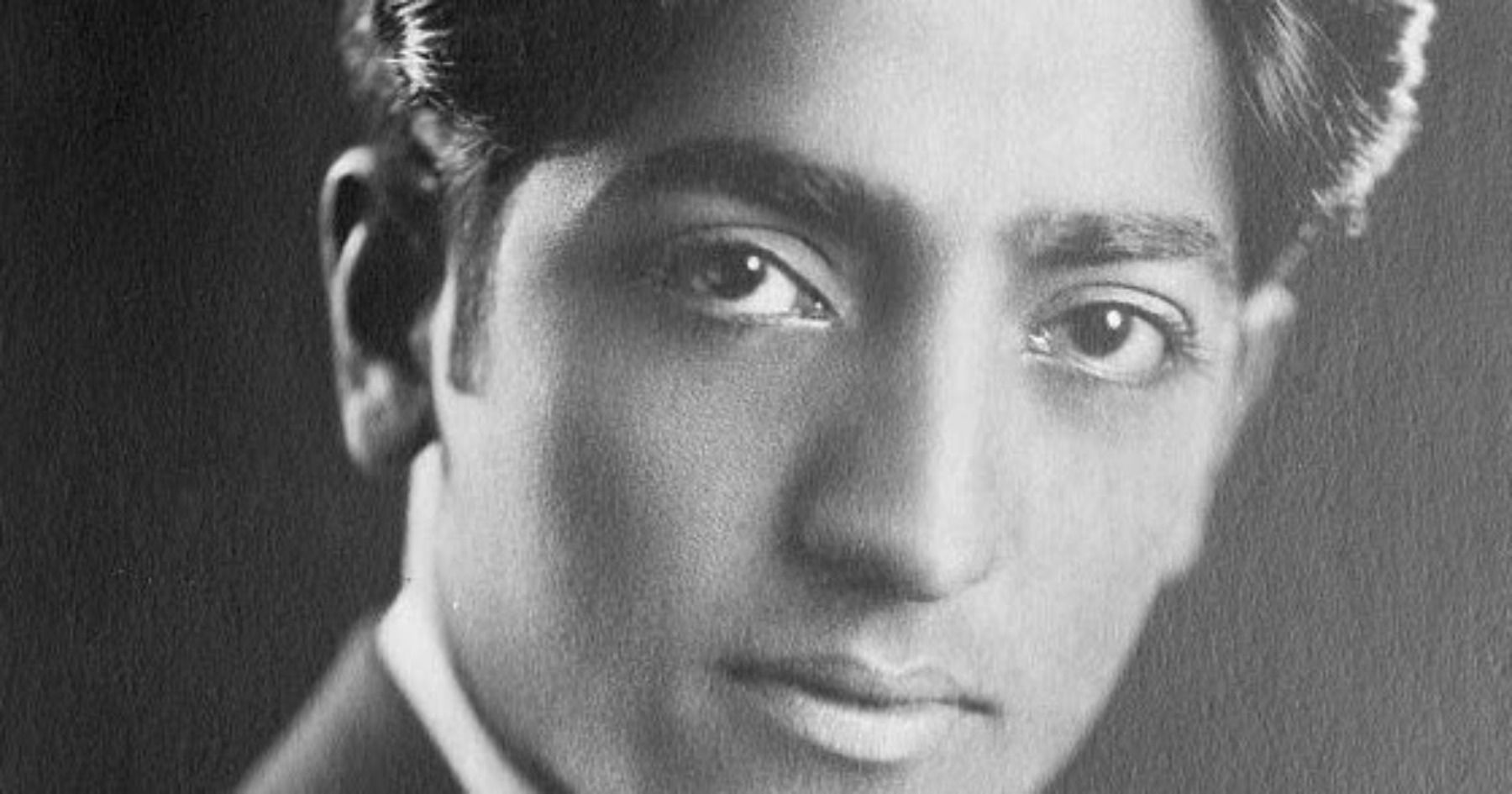
About the Author:
Jiddu Krishnamurti was born on 11 May 1895 in Madanapalle, a small town in south India. He and his brother were adopted in their youth by Dr. Annie Besant, then president of the Theosophical Society. Dr. Besant and others proclaimed that Krishnamurti was to be a world teacher whose coming the Theosophists had predicted. To prepare the world for this coming, a worldwide organization called the Order of the Star in the East was formed, and the young Krishnamurti was made its head.
In 1929, however, Krishnamurti renounced the role that he was expected to play, dissolved the Order with its huge following, and returned all the money and property that had been donated for this work.
From then, for nearly sixty years until his death on 17 February 1986, he traveled throughout the world talking to large audiences and to individuals about the need for a radical change in humankind.
Krishnamurti is regarded globally as one of the greatest thinkers and religious teachers of all time. He did not expound any philosophy or religion, but rather talked of the things that concern all of us in our everyday lives, of the problems of living in modern society with its violence and corruption, of the individual's search for security and happiness, and the need for humankind to free itself from inner burdens of fear, anger, hurt, and sorrow.
Krishnamurti reminded his listeners again and again that we are all human beings first and not Hindus, Muslims, or Christians, and that we are like the rest of humanity and are not different from one another. He asked that we tread lightly on this earth without destroying ourselves or the environment. He communicated to his listeners a deep sense of respect for nature. His teachings transcend man-made belief systems, nationalistic sentiment, and sectarianism. At the same time, they give new meaning and direction to humankind's search for truth. His teaching, besides being relevant to the modern age, is timeless and universal.
Additional Resources:
Jiddu Krishnamurti - Wikipedia
Jiddu-Krishnamurti.org - Main Website
Jiddu Krishnamurti - The Ending of Conflict
Jiddu Krishnamurti - On Relationships and Conflict
Jiddu Krishnamurti - Truth is a Pathless Land
This Book on Amazon:
On Conflict, by Jiddu Krishnamurti
If You Liked This Book:
The Revolution from Within, by Jiddu Krishnamurti
The First and Last Freedom, by Jiddu Krishnamurti
